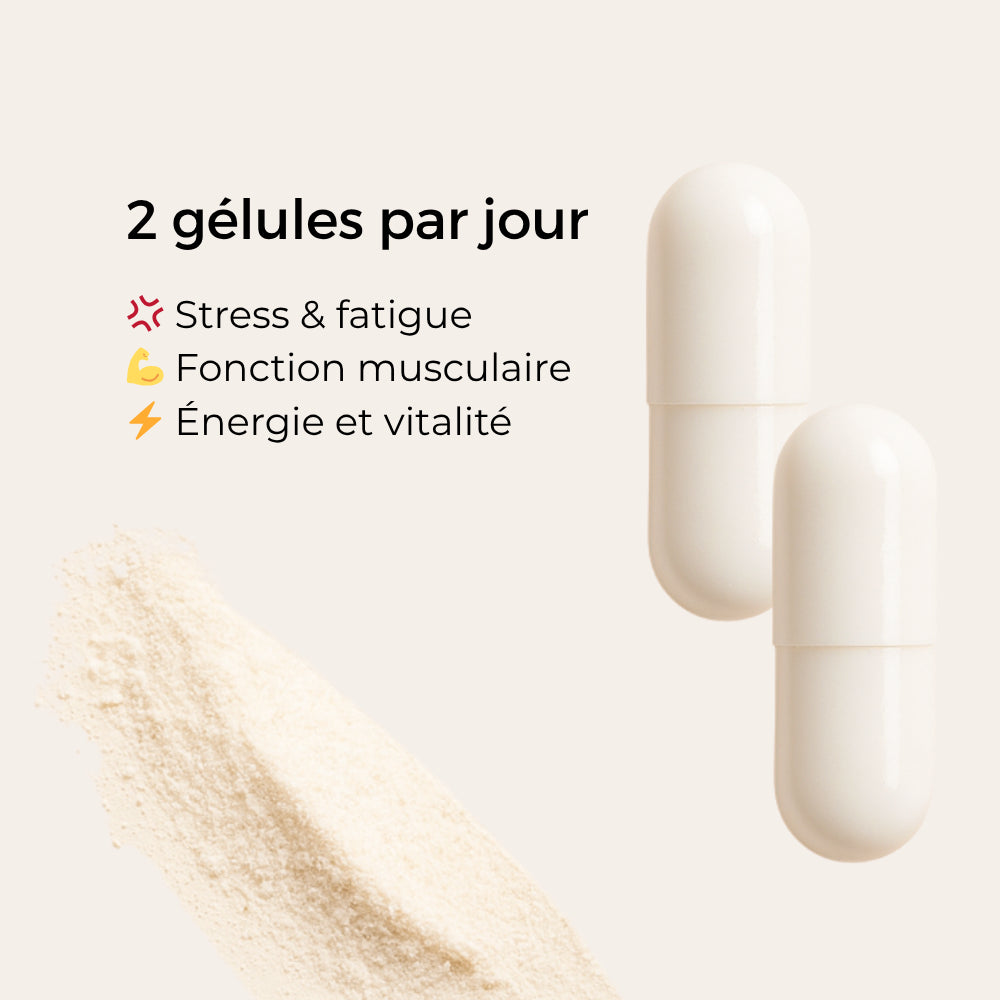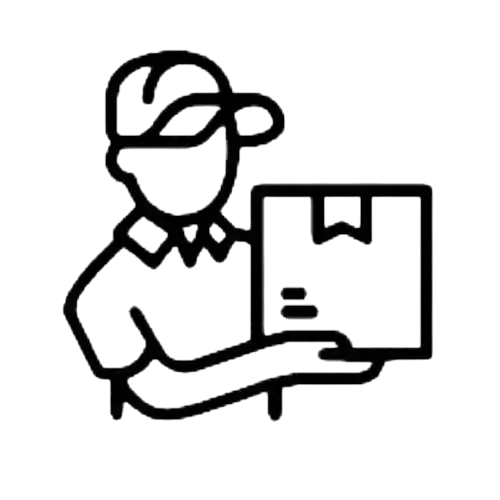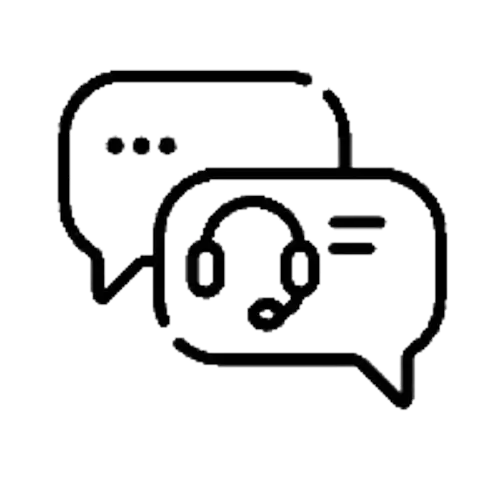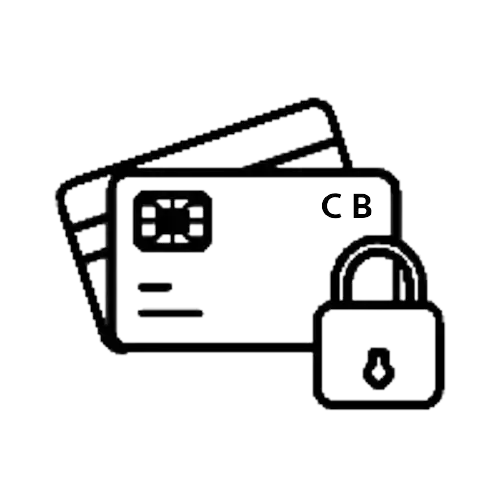
Digital Stress: How to Identify and Manage It Effectively?
Do you compulsively check your notifications? Do you feel exhausted after a day spent in front of screens? Do you struggle to disconnect from work, even in the evening? You're not alone. In our hyper-connected world, digital stress has become a common phenomenon affecting more and more people.
Information overload, the omnipresence of social media, permanent remote work, and the pressure to remain constantly online can have detrimental effects on our mental and physical health. Between the accumulation of work emails, incessant notifications, and the continuous flow of anxiety-inducing information, our brains are subjected to constant demands that deplete our cognitive resources.
Identifying and managing this type of stress is crucial for maintaining our well-being and preserving our psychological balance. But how do we recognize the signs of digital stress? Why do screens increase our mental fatigue? And above all, what concrete solutions exist for regaining a healthy relationship with technology?
This article explores in depth how to recognize the signs of digital stress and offers effective strategies for dealing with it on a daily basis.
What exactly is digital stress?
Definition of Digital Stress
Digital stress, also called technostress, refers to the state of psychological and physical tension caused by the excessive or inappropriate use of digital technologies. It results from the inability to manage our relationship with screens, notifications, and constant connectivity in a healthy way.
This modern phenomenon is characterized by constant cognitive stimulation, where our attention is continually diverted by alerts, notifications, and information. Added to this is the pressure to be available, the feeling of obligation to respond immediately to messages that follows us even outside of working hours. Our brains now receive more information than they can process effectively, creating an anxiety-inducing information overload. The boundaries between professional and personal life, between work time and rest time, are becoming increasingly blurred, or even nonexistent for some.
How Does Digital Technology Generate Stress?
Digital technologies generate stress through several complex mechanisms that intersect and amplify one another. Our brains are simply not designed to process so much information simultaneously. Digital multitasking depletes our mental resources: switching between applications, juggling emails, social media, and work decreases our efficiency instead of increasing it. This cognitive overload creates an insidious mental fatigue that accumulates day after day.
Every notification disrupts our concentration more profoundly than we realize. Studies show that it takes an average of 23 minutes to regain our initial focus after an interruption. Yet, we receive dozens of notifications every day, constantly fragmenting our attention. FOMO, the fear of missing out, drives us to compulsively check our devices, creating a state of perpetual anxiety that is becoming our new normal.
Social media amplifies this phenomenon by presenting an idealized version of other people's lives, generating insecurity, jealousy, and anxiety. We compare our ordinary reality to the extraordinary moments artfully staged by others. The ability to be reached at any time also creates constant psychological pressure. Even outside of work hours, our phone remains this permanent link to our professional obligations, preventing us from truly disconnecting and recharging.
Does Digital Stress Affect Everyone?
Yes, but to varying degrees. Remote workers are particularly vulnerable due to the blurred lines between work and personal life. When your office is in your living room, how can you truly "switch off" from work? Executives and managers face constant expectations of availability, creating an exhausting mental burden. Young adults, hyper-connected to social media, develop specific forms of anxiety related to social validation and constant comparison. Digital professionals combine prolonged professional screen time with personal use, while parents juggle work and family screens, multiplying the sources of demand.
Identifying Digital Stress: What Are the Signs?
Physical and Mental Symptoms
Digital stress often manifests itself through various physical and mental symptoms that are important to recognize in order to act before the situation worsens.
Mental fatigue is the most common symptom. You experience a kind of brain fog, a hazy feeling that makes concentration and decision-making difficult. Difficulty focusing on a single task is accompanied by frequent forgetfulness and a noticeable drop in creativity and productivity. Procrastination creeps in: you postpone important tasks in favor of compulsively checking your notifications, creating an exhausting vicious cycle.
Anxiety and irritability also arise, exacerbated by the constant stream of notifications and the fear of missing out. You become nervous, restless, and impatient. Your emotional reactions become disproportionate to minor situations. The feeling of being overwhelmed becomes constant, and a specific anxiety appears as soon as you are separated from your phone—a condition known as nomophobia. This smartphone addiction reflects an unhealthy relationship with technology.
Sleep disturbances are another key indicator, often exacerbated by screen use before bed. The blue light emitted by screens disrupts the production of melatonin, the sleep hormone, leading to difficulty falling asleep and frequent awakenings during the night. Sleep becomes unrefreshing: one wakes up as tired as when going to bed. Some even develop a compulsive use of their phones at night, further fragmenting their precious rest.
Physical pain often accompanies this clinical picture. Frequent headaches, such as tension headaches, are accompanied by neck and back stiffness due to prolonged poor posture. Eye strain manifests as dry eyes, blurred vision, and stinging sensations. Carpal tunnel syndrome can develop in those who intensively use a keyboard and mouse. The distorted posture, known as "text neck," results from constantly tilting the head towards the screen, creating chronic muscle tension.
Risky Behaviors
Beyond the symptoms, certain behaviors reveal a problematic relationship with digital technology. Compulsively checking devices, even in the absence of notifications, is a major warning sign. Do you check your phone as soon as you wake up, before even getting out of bed? Do you compulsively check your emails, even on weekends? The inability to go more than 15 minutes without checking your phone, this reflexive checking of social media for no particular reason, and the panic when your phone battery is low all point to a worrying addiction.
Constant digital multitasking depletes your cognitive resources. Juggling multiple tabs, applications, and conversations simultaneously, listening to an online meeting while checking emails, watching a series while scrolling through social media, or responding to messages during a face-to-face conversation fragments your attention and drastically reduces your actual efficiency.
Social isolation is progressing insidiously. Online interactions are gradually replacing face-to-face encounters, paradoxically leading to feelings of loneliness and isolation. People prefer to communicate via text messages rather than face-to-face, decline invitations to stay connected, experience emotional disconnection despite digital hyperconnectivity, and struggle to maintain conversations without checking their phones.
The inability to disconnect manifests itself in many ways. You check your work emails in the evenings and on weekends. Anxiety rises when you don't have access to your phone. If you spend more than four hours a day on your smartphone for non-work purposes, if your loved ones complain about your constant screen time, and if you neglect your favorite activities in favor of screen time, it's time to take action.

Why Do Screens Increase Mental Fatigue?
The Impact on the Brain
Screens place a particularly intense strain on our brains, creating a specific type of cognitive fatigue. Our attention is constantly being pulled, fragmented, and diverted. The brain must simultaneously process visual and textual information, auditory stimuli, and multiple demands. This attentional overload creates a state of mental exhaustion that accumulates insidiously throughout the day.
Moments of boredom are essential for our brain to regenerate, consolidate information, and repair itself. Yet, we systematically fill these precious moments by checking our phones, depriving our brains of their natural recovery phases. This chronic deprivation of cognitive rest largely explains the feeling of permanent mental fog that so many people experience today.
Visual stress also contributes to this fatigue. The blue light from screens disrupts our circadian rhythm and tires our eyes. Constant eye movements, repeated refocusing between different distances, and prolonged exposure to artificial light exhaust our visual system in ways it was never designed to withstand.
Can Teleworking Cause Digital Stress?
Remote work is a major contributing factor to digital stress. The lack of physical boundaries between professional and personal space creates exhausting mental confusion. Offices in the living room, bedrooms transformed into meeting spaces—all these blur the spatial markers that once helped us separate the different aspects of our lives.
Constant hyperconnectivity is intensifying: how can we truly "close" the office when it remains accessible, just a few meters away? The proliferation of online meetings generates what is known as "Zoom fatigue," linked to the additional cognitive effort required by virtual interactions. Our brains work harder to decode facial expressions on a screen, manage audio delays, and compensate for the lack of complete body language.
The pressure to be visible creates insidious stress. The need to demonstrate that one is working by being ultra-responsive to messages leads to exhausting constant availability. Social isolation adds to the equation: the absence of informal interactions that normally allowed for de-stressing deprives remote workers of a natural outlet for work-related stress.
Managing Information Overload and Social Networks
Understanding Information Overload
Today, we receive as much information in a single day as a 15th-century person would have received in their entire lifetime. Our brains are simply not equipped to handle this information deluge, creating constant anxiety through several interconnected mechanisms.
The inability to process everything generates a constant feeling of being overwhelmed. Conflicting information creates confusion and paralyzing indecision. The constant stream of negative news fuels a generalized anxiety that permeates our mental state. Constant social comparison gradually erodes our self-esteem, leaving us prey to a chronic sense of inadequacy.
To manage this overload, start by choosing a maximum of two or three news sources, prioritizing quality over quantity. Set specific times to check the news, for example, ten minutes in the morning and ten minutes in the evening, rather than remaining in a constant state of alert. Unsubscribe ruthlessly from newsletters you never have time to read. If a piece of information requires more than three clicks to verify or explore further, ask yourself if it's truly essential to your life.
Practicing Digital Detox
Taking regular breaks from screens is an effective strategy for recharging and reducing digital stress. Setting aside screen-free times, such as during meals or before bed, helps decrease exposure to digital stimuli. No screens in the bedroom, family meals without phones on the table, a first hour in the morning without checking your phone, and a final hour before bed without screens create essential pockets of cognitive recovery.
Dedicating a day or two each week to technology-free activities can have remarkable benefits for both mental and physical health. A walk in nature without your phone allows your brain to truly regenerate. Reading physical books engages your attention in a deep and calming way. Hands-on activities like gardening, cooking, or DIY projects reconnect you with the physical world. Family board games, sports, and physical activities offer healthy alternatives to digital stimulation.
Also, apply the 20-20-20 rule to protect your eyes: every twenty minutes, look at something twenty feet (about six meters) away for twenty seconds. This simple step prevents the chronic eye strain that accompanies intensive screen use.
Can Social Media Cause Unconscious Stress?
Absolutely. Social media platforms are meticulously designed to capture and hold our attention. Their algorithms stimulate dopamine production, creating a subtle addiction of which we are often unaware. The stress they generate often operates below our conscious threshold.
Constant social comparison compels us to compare our ordinary lives, with their ups and downs, moments of doubt and fatigue, to the carefully selected "highlights" of others. This biased comparison gradually erodes our self-esteem. Social validation through likes creates an unhealthy emotional dependency, where our mood becomes contingent on the virtual approval of others.
FOMO, the fear of missing out, generates anxiety about not being informed, driving us to compulsively check our news feeds. Exposure to cyberbullying and negative comments, even indirect ones, creates an environment of underlying stress. The resulting information overload, this constant overabundance of information, generates confusion and cognitive overload.
To use social media more mindfully, set a strict daily limit, for example, a maximum of thirty minutes. Apps like Screen Time on iOS or Digital Wellbeing on Android can help you monitor and limit your screen time. Turn off all non-essential notifications, keeping only those for truly important calls and messages.
Practice "mindful scrolling." Before opening an app, ask yourself: Why am I opening it? Is it for a specific purpose or simply out of habit? How much time will I spend on it? Is this really the best use of my time right now? This brief moment of awareness can radically transform your relationship with social media.
Create a positive online environment by following inspiring and enriching accounts. Prioritize educational content, accounts that genuinely make you laugh, people who share your values, and those focused on personal development and well-being. Once a quarter, ruthlessly unfollow accounts that generate jealousy, insecurity, or consistently spread negative content.
Managing the Pressure of a Permanent Connection
Establish Clear Boundaries
Digital stress at work refers to the insidious pressure linked to the obligation to react immediately to emails and messages, the proliferation of communication tools such as Slack, Teams, emails, and SMS, and repeated video conference meetings. This hyperconnectivity leaves no time for cognitive recovery, creating an increasing difficulty in prioritizing what is urgent and what is important.
Setting clear boundaries between work time and personal time is essential for managing the stress of being constantly connected. Establish strict working hours and communicate them clearly to your colleagues. Activate an automatic reply outside of working hours. Turn off work notifications in the evenings and on weekends. Create a "closing" ritual for the office, even when working remotely: close all your work applications, do a short physical activity, even just a ten-minute walk, change your clothes, put away your work materials out of sight, practice five minutes of breathing exercises or meditation, and then reconnect with loved ones without screens.
Designate specific areas of the house for screen-free activities. The bedroom should become a screen-free sleep sanctuary. The dining table transforms into a space for genuine conviviality where phones have no place. Dedicate an armchair specifically to reading, creating a mental association between this space and analog relaxation.
Practicing Mindfulness Activities
Incorporating mindfulness practices into your daily routine is a powerful strategy for managing digital stress . Mindful breathing, practiced for five minutes morning and evening, anchors your attention in the present moment. Mindfulness meditation teaches you to observe your thoughts without judgment, creating a healthy distance from the mental flow. Body scanning develops your awareness of accumulated physical tension. Heart coherence, practiced for five minutes three times a day, regulates your autonomic nervous system.
Regular exercise is a powerful way to reduce stress and improve overall well-being. Aim for at least 30 minutes of physical activity per day, prioritizing screen-free activities such as walking, swimming, or cycling. Yoga and Tai Chi harmoniously combine movement and meditation, offering a holistic approach to stress management.
Consuming Dietary Supplements
Dietary supplements can play a significant role in managing digital stress. Vitamins such as B vitamins and magnesium, as well as herbal supplements like rhodiola and saffron, are known for their relaxing properties and their beneficial effect on the nervous system, which is strained by constant connectivity.
Do magnesium or sleep gummies help with recovery?
Absolutely. Magnesium is an essential mineral often lacking in our modern diet. It plays a crucial role in regulating the nervous system, muscle relaxation, sleep quality, and stress management. Discover our magnesium bisglycinate capsules , a premium form of magnesium that is more easily absorbed by the body and gentler on the stomach.
Saffron Anti-Stress Gummies: Your Ally Against Digital Stress
Faced with daily digital stress, Délicure's Safr'Inside™ patented saffron anti-stress gummies offer a particularly suitable natural solution. Safr'Inside™ patented saffron is scientifically recognized to reduce anxiety, improve mood, and promote mental relaxation after days of constant connectivity. Vitamin B6 supports the proper functioning of the nervous system, which is often overtaxed by screens. Their no-added-sugar format avoids blood sugar spikes that exacerbate stress, while their convenient shape makes them easy to consume at the office or after a long day of working from home.
These gummies are especially suited to remote workers exposed to screens all day, people suffering from digital fatigue, those who struggle to disconnect after work, and professionals experiencing information overload. Ideally, take them in the late afternoon or early evening to facilitate the transition between work and relaxation, helping your nervous system regenerate after a day of digital exposure.
CBD for Effective Relaxation
CBD , a non-psychoactive compound extracted from hemp, is gaining popularity for its remarkable calming effects. It can help you relax effectively during or after a workday, making it a potential ally against digital overload and the constant pressure of being connected. CBD acts on the endocannabinoid system to reduce anxiety without sedation, promote muscle relaxation, improve sleep quality, and soothe a nervous system overstimulated by constant connectivity.
Organizing Your Day to Avoid Digital Overload
The time-blocking method involves planning your day in blocks of time dedicated to specific activities. Create blocks of deep work without any digital interruptions, lasting between ninety and one hundred and twenty minutes. Limit communication to emails and messages to two or three thirty-minute periods per day. Incorporate fifteen-minute screen-free breaks every two hours. Reserve a complete disconnection block of at least one hour before bedtime.
Apply the two-minute rule: if a digital task takes less than two minutes, do it immediately. Otherwise, schedule it in a dedicated block of time. This approach avoids the anxiety-inducing accumulation of small tasks that fragment your attention throughout the day.
Prioritize single-tasking over multitasking. Focus on one thing at a time by closing all tabs except the one you're working on. Put your phone on airplane mode or place it in another room. Use website-blocking apps like Freedom or Cold Turkey. Work in 25-minute sessions using the Pomodoro Technique, creating a natural rhythm of focus and recovery.
Regaining Mental Calm in the Digital Age
Digital minimalism, inspired by Cal Newport's book "Digital Minimalism," offers a radical yet liberating approach. Identify the technologies that truly add value to your life. Eliminate the rest, or at least drastically reduce it. Optimize the use of the technologies you keep by using them intentionally rather than compulsively.
Rediscover offline activities that truly nourish your soul. In the morning, prioritize reading, journaling, and a mindful breakfast without any screens. During the day, allow yourself walking breaks, face-to-face conversations, and phone-free coffee breaks. In the evening, immerse yourself in cooking, creative activities, board games, and genuine family discussions. On weekends, plan nature outings, play sports, visit cultural sites, and cultivate real social connections.
In a digital world where everything is constantly accelerating, consciously relearn slowness. Take the time to savor your meals, paying close attention to the flavors, textures, and aromas. Walk aimlessly, simply for the pleasure of putting one foot in front of the other. Read an entire book without interruption, rediscovering the joy of deep immersion. Contemplate nature without taking a photograph, allowing the experience to imprint itself on your memory rather than on your digital camera. Listen actively during conversations, offering your full presence to the person speaking.
Why Does Digital Stress Prevent Sleep?
Digital stress disrupts sleep through several interconnected mechanisms. Screens emit blue light that inhibits the production of melatonin, the hormone that signals to the body that it's time to sleep. This disruption of the circadian rhythm can delay falling asleep by one to two hours, creating a chronic mismatch between our biological need for sleep and our bedtime.
Checking emails, scrolling through social media, or watching videos keeps the brain in a state of active wakefulness, making the transition to sleep difficult or even impossible. This cognitive overstimulation just before bedtime directly combats the natural processes of falling asleep. Anxiety-inducing or stressful information accessed before bedtime fuels nighttime rumination, transforming the bed into a space of worry rather than rest.
To avoid screens before bed, create a gradual and intentional evening routine. Two hours before bedtime, progressively reduce your screen exposure. One hour before bed, implement a complete shutdown: leave your phone charging outside the bedroom, and if an appointment is absolutely necessary, activate a blue light filter. Replace screen time with truly calming activities such as reading, slowly sipping herbal tea, meditating, or gentle stretching. At bedtime, use a traditional alarm clock rather than your phone, thus preserving the bedroom as a sanctuary for sleep.
Take Back Control of Your Digital Life
Digital stress is a contemporary challenge that requires a proactive approach to be managed effectively. By identifying the signs of information overload, adopting healthy digital habits, establishing clear boundaries between online and offline time, and engaging in certain activities, it is possible to significantly reduce the impact of digital stress on our daily lives.
Digital stress is real and affects more and more people, manifesting as identifiable physical and mental symptoms. Regularly disconnecting is essential for your mental health, while clear boundaries between work and personal life are becoming indispensable. Natural supplements like magnesium, saffron, and CBD can support you in this process. Digital minimalism allows you to reconnect with what truly matters, and offline activities are crucial for your psychological and physical well-being.
It's important to remember that technology should be a tool to improve our lives, not a source of additional stress. By regaining control of your digital usage, you regain control of your well-being.
Choose one concrete action from those suggested in this article and implement it today. Whether it's disabling non-essential notifications, establishing a screen-free hour before bed, or trying saffron gummies to soothe your nervous system, every small step counts and adds up to create lasting change.
Remember: you are not a slave to your devices. You have the power to decide when, how, and why you use them. Your mental health and well-being deserve this conscious and caring attention.


























